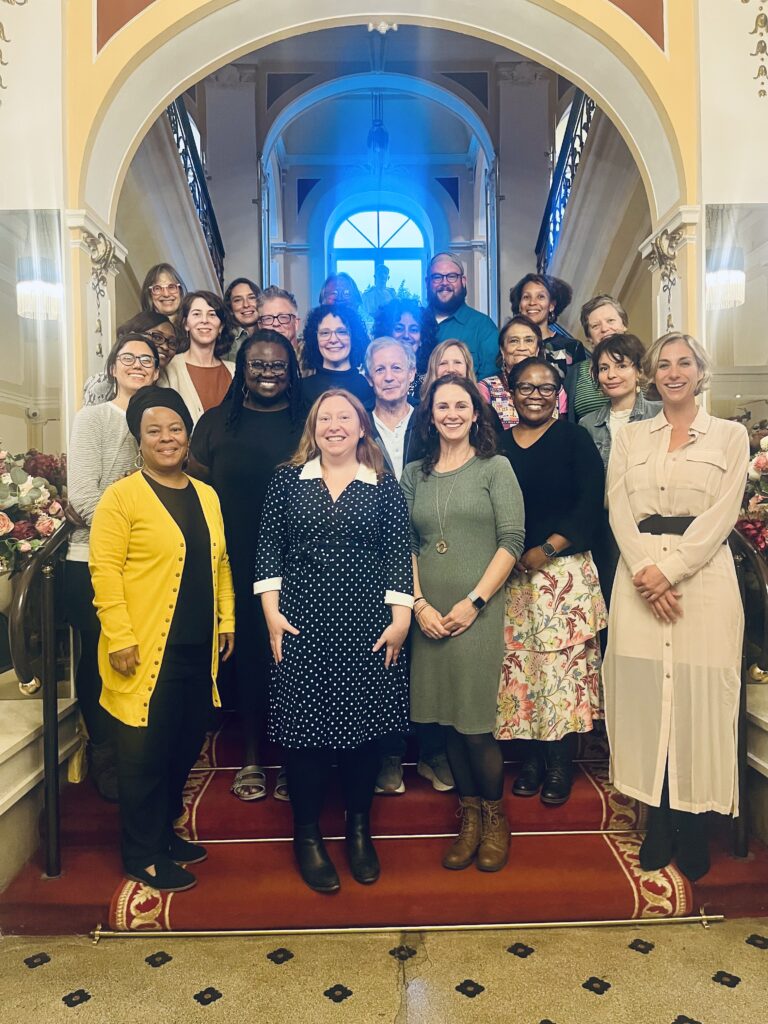Biocultural Anthropology for the 21st Century
Date
Oct 5-9, 2025Organized by
Alan Goodman , Morgan Hoke , Tom Leatherman and Paula TallmanLocation
Hotel Marienhof, Reichenau an der Rax, AustriaParticipants
- Teresa Aledo Graphic Recorder
- Felicity Aulino University of Massachusetts Amherst, USA
- Donna Auston Wenner-Gren Foundation, USA
- Edna Bosire Brain and Mind Institute Aga Khan University, Kenya
- Chelsey Carter Yale School of Public Health, USA
- Zachary Dubois University of Oregon, USA
- Sahra Gibbon University College London, UK
- Alan Goodman Hampshire College, USA
- Morgan Hoke University of North Carolina at Chapel Hill, USA
- Kasey Jernigan University of Virginia, USA
- Emma Kowal Deakin University, Australia
- Thomas Leatherman University of Massachusetts Amherst, USA
- Luseadra McKerracher Aarhus University, Denmark
- Emily Mendenhall Georgetown University, USA
- Nolwazi Mkhwanazi University of Pretoria, South Africa
- Florencia Peña Saint Martin Escuela Nacional de Antropología e Historia (ENAH) Instituto Nacional de Antropología e Historia (INAH), Mexico
- Danilyn Rutherford Wenner-Gren Foundation, USA
- Rick Smith George Mason University, USA
- Maka Suarez University of Oslo, Norway
- Paula Tallman Loyola University Chicago, USA
- Lesley Jo Weaver University of Oregon, USA
ORGANIZER’S STATEMENT: A quarter century ago, Building a New Biocultural Synthesis (Goodman and Leatherman, eds), reviewed the current state of biocultural anthropology, charting a new way forward for this field that connects analyses of large scale political economic processes with local cultures, ecologies, bodies, and biologies. Since the publication of this edited volume in 1998, the number of individuals who identify as biocultural anthropologists has steadily increased and the term “biocultural” is now often used in advertisements for faculty positions. Importantly, a new generation of anthropologists, attracted to the breadth and applicability of biocultural approaches, are pushing the field into new theoretical and methodological territories including considerations of situated biologies, syndemics, epigenetics, the microbiome, and multi-species interactions, among others. Yet there remains a need to diversify the voices in biocultural anthropology, to articulate our core contributions, and to think creatively about ways to increase the impact of this field across generations, disciplines, and global contexts.
Since then, an increasing number of anthropologists trained in the Boasian tradition have been working toward developing an engaged and critical biocultural anthropology. Biocultural anthropologists and allied scholars are increasingly trying to better understand how large scale political economic processes affect local cultures and ecology and subsequently become embodied. Researchers who primarily identify as social epidemiologists as well as biosocial, medical and biocultural anthropologists take varied methodological and theoretical routes to common goals: better understanding how systemic inequalities get under the skin, how the biological consequences of inequality might further perpetuate unequal systems, and what can be done to disrupt these processes. Recent innovations in human biology, shifts in social theory such as the integration of Indigenous and decolonial approaches, and growing commitments to bottom up and engaged scholarship have now set the stage for the next wave of critical biocultural scholarship.
It is in this context that the Wenner-Gren Foundation for Anthropological Research, in collaboration with the seminar organizers, has brought together a global cohort of scholars to engage around the theme, “Biocultural Anthropology for the 21st Century: Intergenerational, Interdisciplinary, and International Impacts.” The aim of this seminar is to collaboratively explore and envision what an engaged and critical biocultural anthropology of the 21st century might look like. Rather than defining a discipline – what biocultural anthropology is now – our inquiries center on what biocultural approaches can do now and should do in the near future. How can biocultural anthropology best understand and engage with global problems such as persistent racism, economic inequality and the climate crisis?
The group of researchers invited to participate in this seminar is international and intergenerational. The organizers have worked to bring together anthropologists and allied scholars at different stages in their careers, and from across the globe, to discuss how biocultural anthropology can contribute to confronting environmental and social justice issues. Further, we seek to collectively assess the current state of research in and adjacent to biocultural anthropology such as the biosocial and ecosocial approaches and to chart promising areas for future developments.
To do this, we have asked our participants to consider where a biocultural approach has been – and might be – most useful for contributing to our understanding of these processes and their biological consequences.
